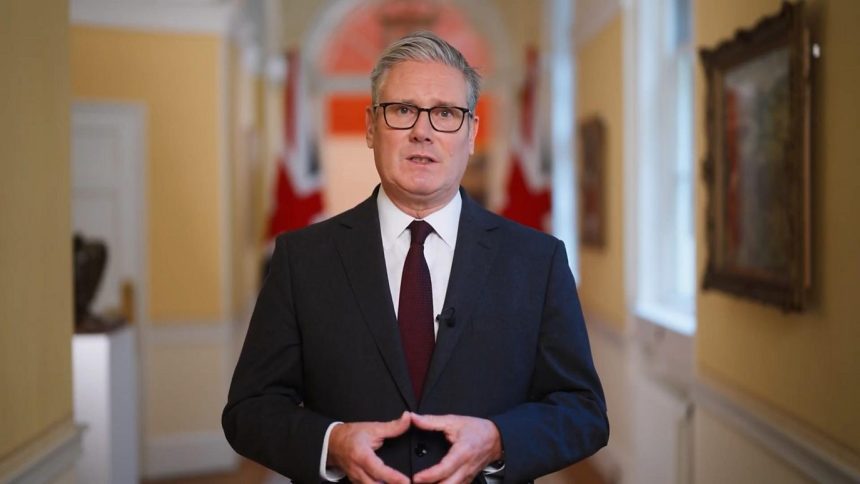In a move that has shaken decades of western foreign policy, Britain, Australia and Canada on Sunday formally recognised a Palestinian state, sparking swift anger from Israel.
Portugal also announced that it would recognise Palestine later in the day, adding to the growing international pressure over Israel’s war in Gaza, which began almost two years ago after the October 7, 2023 Hamas attack.
“Today, to revive the hope of peace for the Palestinians and Israelis, and a two-state solution, the United Kingdom formally recognises the State of Palestine,” UK Prime Minister Keir Starmer said in a message on X.
Canada’s Prime Minister Mark Carney wrote, “Canada recognizes the State of Palestine and offers our partnership in building the promise of a peaceful future for both the State of Palestine and the State of Israel.”
The recognition marks the first time G7 countries have taken the step, with France and others expected to follow when the UN General Assembly opens on Monday in New York.
Israeli Prime Minister Benjamin Netanyahu reacted angrily, warning that such moves would only embolden militants. “Calls for a Palestinian state would endanger our existence and serve as absurd reward for terrorism,” Netanyahu said on Sunday.
The Gaza Strip has faced heavy bombardment, mass destruction, food shortages, and a soaring death toll since the war began. According to Gaza’s health ministry, at least 65,208 people, mostly civilians, have been killed, while Israel says the Hamas attack in 2023 left 1,219 dead, also mostly civilians.
The UK government has been under intense pressure at home to act, with tens of thousands taking to the streets in monthly rallies. A YouGov poll published Friday showed two-thirds of Britons aged 18 to 25 supported Palestinian statehood.
Britain’s Deputy Prime Minister David Lammy admitted in July that the UK carried a “special burden of responsibility to support the two-state solution,” pointing to Britain’s role in the 1917 Balfour Declaration, which paved the way for the creation of Israel.
Palestinian leaders welcomed the decision. Foreign Minister Varsen Aghabekian Shahin told AFP last week, “Recognition is not symbolic. It sends a very clear message to the Israelis on their illusions on continuing their occupation forever.”
But Lammy, speaking to the BBC on Sunday, cautioned that recognition was not a solution on its own. “Will this feed children? No it won’t, that’s down to humanitarian aid. Will this free hostages? That must be down to a ceasefire,” he said. He added, however, that it was a necessary step to “hold out for” a two-state solution.
Portugal’s President Marcelo Rebelo de Sousa also defended his country’s move, saying, “By acting now, as the Portuguese government has decided, we’re keeping alive the possibility of having two states.”
Three-quarters of UN members already recognise Palestine, with over 140 of the 193 member states having taken the step.
Starmer has previously warned Israel that the UK would act unless it made “substantive” progress, including agreeing to a ceasefire in Gaza, increasing humanitarian aid, and halting any plans to annex the West Bank. He has also called on Hamas to release the hostages taken in 2023 and is expected to announce new sanctions on the group.
The recognition by some of Israel’s strongest allies now sets the stage for tense debates at the UN General Assembly, where Netanyahu has vowed to fight against it.











